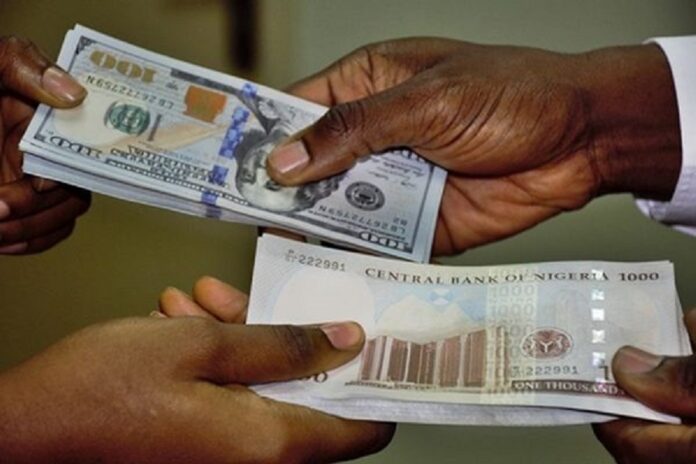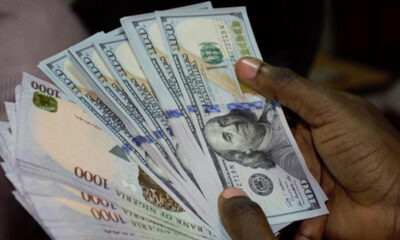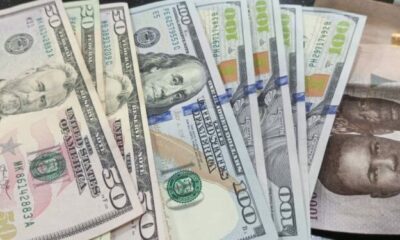Top Headline
BREAKING: Naira falls massively across markets (See new exchange rate)

The naira depreciated on the official and parallel markets at the weekend as the country’s external reserves broke its consecutive weekly increase.
The naira depreciated by 1.1 per cent to N436.33 per dollar at the Central Bank of Nigeria’s (CBN’s) official Investors and Exporters (I & E) Window. But it fell to N708 per dollar at the parallel market.
At the I & E Window, total turnover as of September 8, declined by 62.2 per cent or $282.85 million, with trades consummated within the N425.00 and N437.50 per dollar, according to data provided by Cordros Capital, an investment finance firm.
Managing Director, Financial Derivatives Company Limited, Bismarck Rewane, said naira rates across the markets were converging.
He identified exchange rate structure, restrictive policies, low sales and revenues, rationing of forex supply and capital flight as some of the key factors for naira’s crash across different markets.
The Economist recalled that 12 months ago, top manufacturers complained of limited forex supply, which has now worsened.
According to him, the naira has in the last five years, lost 95 percent of its value against the dollar due to the above-mentioned factors.
Analysts had said the making of the Nigerian Autonomous Foreign Exchange Rate (NAFEX) also called the Investors’ and Exporters’ FX Window as the default official rate was a major step by the regulator to unify exchange rates.
Meanwhile, experts have said the naira will not appreciate in value against the pound sterling when the British government adopts King Charles 111 as its currency.
There had been concerns over the fate of the naira when news broke that the Bank of England was considering replacing the head of the Queen on the British currency with that of the King, Charles 111.
Taiwo Oyedele of PricewaterhouseCoopers (PwC) dismissed the claim of the naira appreciating when the head of the King is embossed on the British currency.
Oyedele said: “The British government recently withdrew their old bank notes from circulation and introduced modern polymer notes. This meant that anyone holding old British Pound notes in hand must have already returned them to the banks as deposits.’’
















